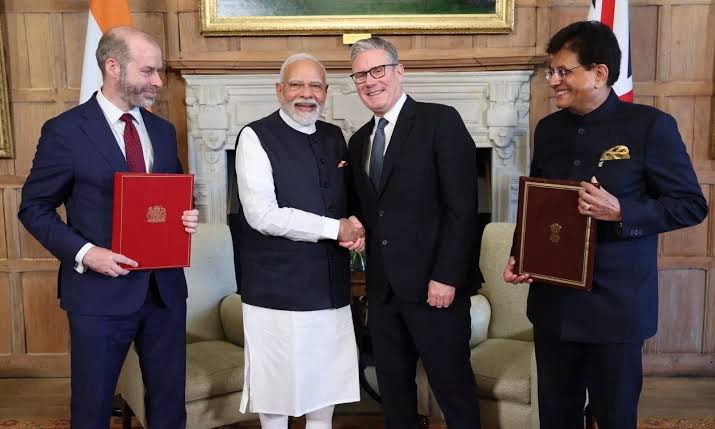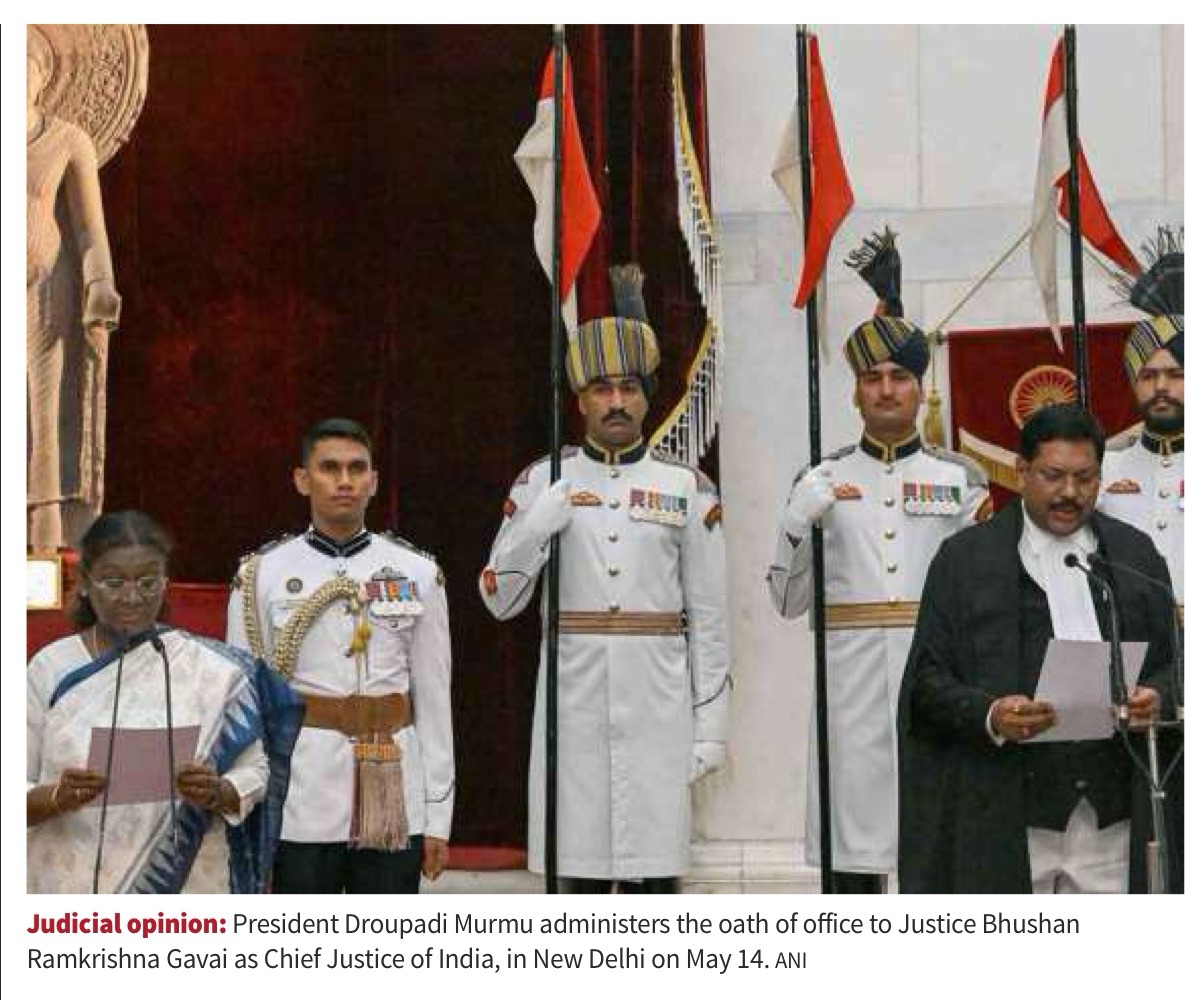🔷 Introduction and Background
India and the United Kingdom signed a landmark Comprehensive Economic Trade Agreement (CETA) during Prime Minister Narendra Modi’s visit to the UK. This is India’s first major Free Trade Agreement (FTA) in over a decade, and the UK’s fourth FTA since its exit from the European Union in 2020. The agreement was finalized after over three years of extensive negotiations.
🔷 Purpose and Significance
The primary aim of the agreement is to make trade between the two countries easier, more efficient, and mutually beneficial. Currently, bilateral trade stands at approximately USD 56 billion, with both nations aiming to double this figure by 2030. The agreement will come into effect once ratified by both sides. While the Indian Union Cabinet has already approved it, it awaits approval from the UK Parliament.
🔷 Benefits for India
Duty-free access for 99% of Indian products to the UK: This especially benefits labour-intensive sectors like textiles, footwear, gems and jewellery, and engineering goods that previously faced tariffs between 4% and 16%. Easier mobility for Indian professionals: Indian chefs, yoga instructors, and IT professionals will have assured temporary access to the UK job market. Exemption from social security contributions: Under the Double Contribution Convention, Indian workers temporarily in the UK will be exempt from paying social security contributions for up to three years, saving costs for both employees and employers. Boost to manufacturing and exports: Key sectors such as electronics, pharmaceuticals, chemicals, food processing, and plastics are expected to benefit. Support for agriculture and fisheries: Duty-free access for many agricultural and marine products will help Indian farmers and fisherfolk better compete in the UK market.
🔷 Benefits for the United Kingdom
Reduced tariffs on nearly 90% of UK exports to India: This will make British goods more affordable and competitive in the Indian market. Major cuts in tariffs on British whisky and gin: Import duties on these goods will drop from 150% to 75% immediately, and further to 40% over the next ten years, providing a major advantage to UK distillers. Lower tariffs on UK-made automobiles: British car manufacturers will benefit from reduced import duties. Access to Indian government procurement: UK companies will be allowed to bid for Indian federal contracts above a certain threshold, opening access to a large and growing public market. Opportunities in services: The agreement includes commitments that benefit UK companies in sectors such as IT, financial services, consulting, and engineering.
🔷 UK–India Vision 2035 Roadmap
This trade agreement aligns with the UK–India Vision 2035 Roadmap, which seeks to deepen and diversify the comprehensive strategic partnership between the two nations. The vision lays out clear goals and milestones for future cooperation, innovation, and growth across trade, investment, technology, education, climate action, and more.
🔷 Conclusion
The Comprehensive Economic Trade Agreement marks a new era in India–UK relations, offering mutual economic growth, deeper strategic ties, and expanded people-to-people linkages. It is a critical step toward realizing the shared vision of Aatmanirbhar Bharat (Self-Reliant India) and Global Britain, unlocking new trade, investment, and professional opportunities on both sides.











